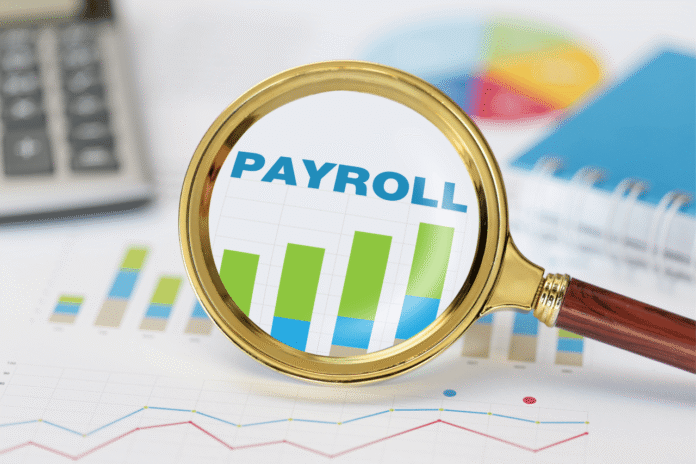Payday should be a moment of celebration not a source of stress. But for many startups and small business owners, it brings anxiety, confusion, and hours of administrative work.
Why? Because managing payroll is complicated. According to a National Small Business Association report, 20% of small business owners spend 6+ hours a month on payroll taxes, and some spend over 10 hours. That’s nearly three full workweeks a year just dealing with payroll!
Fortunately, there’s a smarter way to handle it: automated payroll software. Whether you’re a solo founder or building your first team, automating your payroll process can save you time, reduce mistakes, and keep you compliant from the very beginning.
Here’s why investing in payroll software right when you’re starting out is one of the best moves you can make:
1. Pay Yourself Properly Whether It’s Salary or Owner’s Draw
As a new business owner, you’ll eventually need to decide how to pay yourself. But it’s not as simple as transferring money from your business account to your personal one.
Your payment method depends on your business structure, years of operation, and income strategy. Let’s break it down:
🔹 Salary
If you run an S Corporation or C Corporation, and you’re actively involved in the business, the IRS requires you to pay yourself a reasonable salary. That means a consistent paycheck, just like any other employee.
Once you start taking a salary:
- Payroll taxes apply
- You must make regular tax filings
- Payroll software ensures accurate tax withholding and reporting
🔹 Owner’s Draw
If your business is a sole proprietorship, partnership, or LLC, you can take an owner’s draw a flexible payment method where you withdraw funds as needed.
The pros:
- More cash flow flexibility
- No payroll taxes at the time of withdrawal
The caveat:
- You’ll still owe taxes on the draw when filing your personal return
- You’ll need to track payments for tax and legal purposes
Whether you pay yourself a salary or take draws, payroll software can simplify tracking, deductions, and filings, so you stay compliant and stress-free.
2. Stop Struggling with Payroll Taxes
For small businesses, payroll taxes are a major pain point not just financially, but administratively.
According to the NSBA, payroll taxes are the second-most burdensome tax small business owners face. Why? Because:
- There are multiple agencies (IRS, state, and local) involved
- Each has different filing rules and deadlines
- Taxes must be paid promptly after each payroll cycle
- Laws are always changing
- Hiring across state lines adds complexity
Even solopreneurs aren’t exempt. If you’re paying yourself a salary, the IRS still requires you to:
- Deduct and remit payroll taxes
- File quarterly reports
- Stay compliant with federal and state regulations
Automated payroll software helps by:
- Withholding the correct tax amounts
- Filing taxes on your behalf
- Keeping you ahead of deadlines with reminders and auto-updates
No more spreadsheets or guesswork just peace of mind.
3. Stay Compliant When Hiring Contractors or Employees
As your business grows, you may hire your first contractor or employee. Great! But it also comes with new compliance responsibilities.
Here’s where payroll software can help:
✅ New Hire Reporting
Most states require you to report new hires within 20 days (or sooner). Payroll platforms can automatically handle this for you, so you don’t risk penalties.
✅ Digital Paperwork
Forget messy folders. Good payroll systems streamline:
- W-4s, W-2s, and 1099s
- I-9 employment verification
- Tax and bank details collection
Everything is stored securely online for easy access and compliance audits.
Bonus: With automated onboarding, you’ll impress your new hires and give them a smooth experience from day one.
4. Avoid Costly Payroll Mistakes
Some mistakes are forgivable. Payroll mistakes are not.
In 2017 alone, the IRS issued over $5 billion in payroll-related penalties. Miscalculating taxes or missing deadlines can result in audits, fines, or even legal trouble.
Here’s how payroll software helps you avoid disaster:
- Keeps you compliant with constantly changing tax laws
- Ensures timely, accurate payments to employees
- Tracks time off, bonuses, and overtime correctly
- Stores required records for audits and financial reviews
In other words, it protects your business from:
- Wage disputes
- Tax audits
- Legal action
- Lost licenses or certifications
What to Look for in a Small Business Payroll Software
Not all payroll systems are created equal. Look for features tailored to small business needs, including:
✅ Automatic payroll tax calculation and filing
✅ Payment processing (direct deposit or checks)
✅ Support for contractors and employees
✅ End-of-year tax forms (W-2, 1099)
✅ Alerts for tax deadlines
✅ Employee self-service portals
✅ Digital document storage
✅ Compliance with federal and state regulations
The best part? You don’t need a big-budget solution like large corporations use. Today’s payroll platforms are designed for lean, agile teams and solo founders affordable, simple, and built for growth.
Make Payday Easy and Enjoyable Again
Starting a business is hard enough. Don’t let payroll add unnecessary stress to your journey.
By choosing the right payroll software for your small business, you can:
- Pay yourself and your team correctly
- Avoid tax penalties
- Save hours of admin time each month
- Focus more on growing your business
More importantly, you’ll bring back the excitement that payday used to have without the paperwork nightmares.

